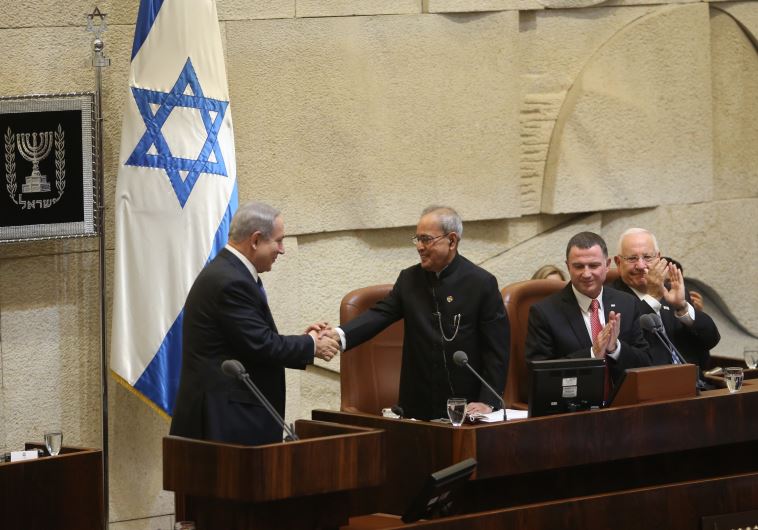Indian President praises economic, scientific cooperation in Knesset speech
Netanyahu: India and Israel both fight fundamentalists; Israel is ready to negotiate with no preconditions.
 PM Netanyahu with Indian president Pranab Mukherjee at Knesset(photo credit: MARC ISRAEL SELLEM/THE JERUSALEM POST)Updated:
PM Netanyahu with Indian president Pranab Mukherjee at Knesset(photo credit: MARC ISRAEL SELLEM/THE JERUSALEM POST)Updated: